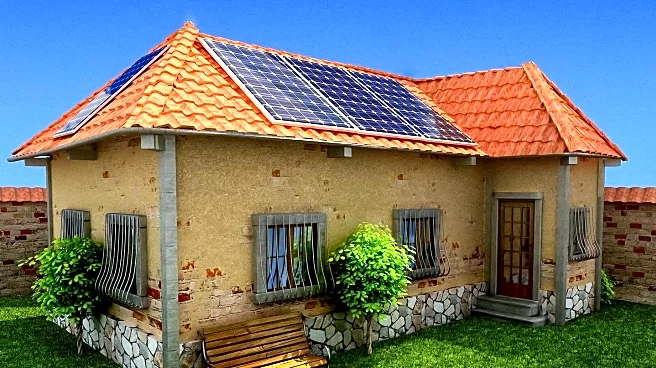What's Happening?
Phantom energy, also known as vampire energy, refers to the electricity consumed by devices that remain plugged in even when not in use. This hidden drain can account for 5% to 10% of home energy use, depending on the age and type of equipment. Common culprits include phone chargers, microwaves, TVs, and gaming consoles. Efforts are underway to reduce this energy waste, with manufacturers and advocates working on agreements to lower standby power consumption in smart televisions. Phantom energy contributes to climate change by increasing demand for electricity from sources that emit greenhouse gases.
Why It's Important?
Addressing phantom energy is significant for reducing household emissions and combating climate change. By unplugging unused devices, individuals can lower their utility bills and contribute to environmental sustainability. The cumulative effect of reducing phantom energy across U.S. homes can lead to substantial decreases in national emissions. This issue highlights the importance of energy efficiency and the role of consumer behavior in achieving environmental goals. As awareness grows, more people may adopt sustainable practices, influencing broader societal norms and potentially leading to policy changes.
Beyond the Headlines
The cultural shift towards unplugging devices and reducing energy waste reflects a growing awareness of individual responsibility in environmental conservation. As more people take action, these practices could become standard, encouraging manufacturers to design more energy-efficient products. The psychological impact of seeing others engage in sustainable behaviors can drive collective action, amplifying the positive effects on the environment.









